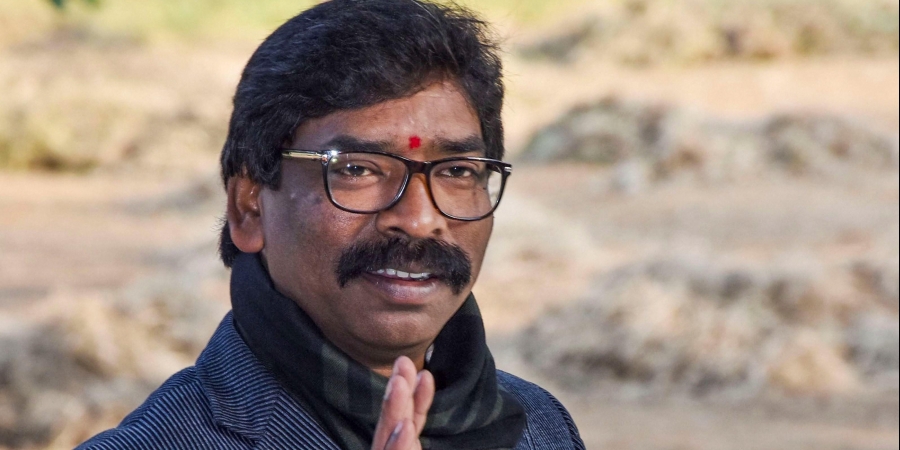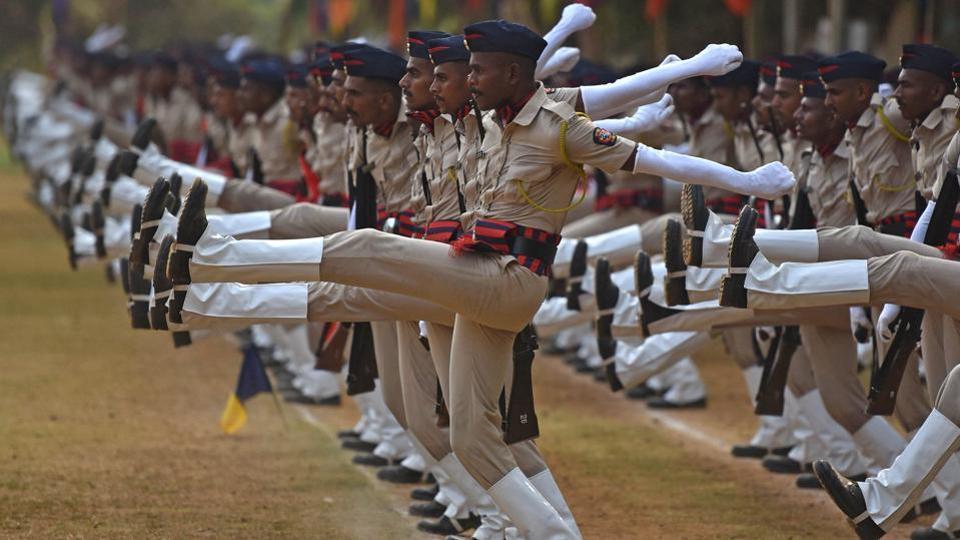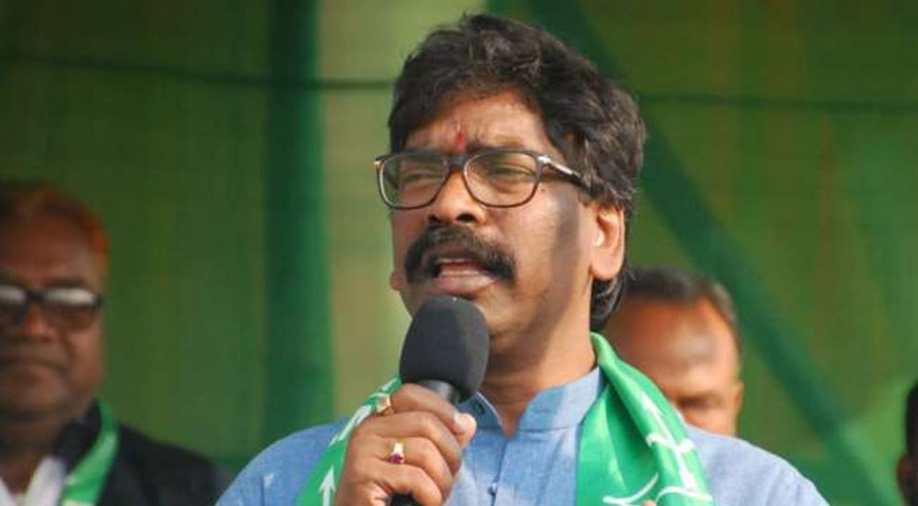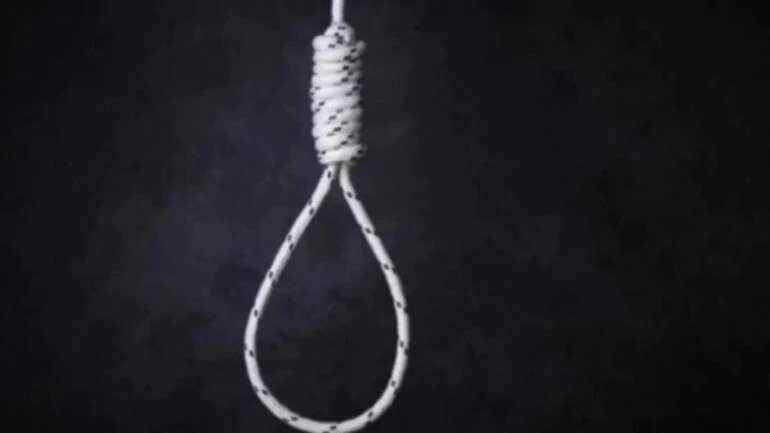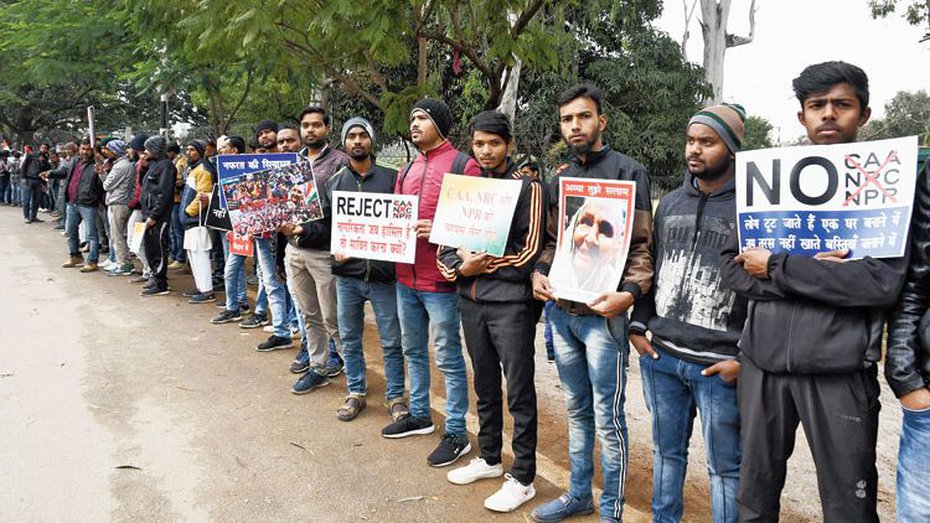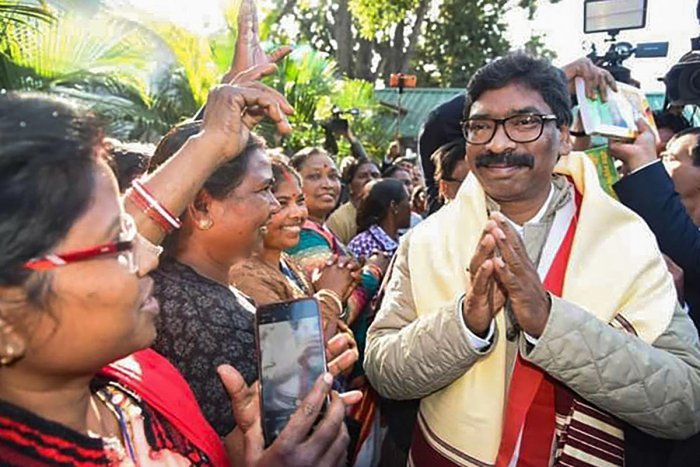Source –
The decisive victory of the ‘Mahagatbandhan’ of Jharkhand Mukti Morcha (JMM), Congress and Rashtriya Janata Dal (RJD) is an interesting turning point in Jharkhand politics, and perhaps of the country’s, too. This is significant in terms of (i) regulating the political ascendance of BJP, (ii) reaffirming the criticality of regional political parties, and (iii) synchronization of national, state and local issues and people’s aspirations.
Immediately after the Jharkhand Assembly election results, many newspapers and TV news channels published two maps of India depicting how the BJP has shrunk in the states after reaching a peak in 2017. The Jharkhand results are important because it was the first election in a north Indian state after the Narendra Modi government’s move to scrap the special status of Jammu and Kashmir, the Supreme Court verdict on the Ayodhya dispute and the passage of the Citizenship Amendment Act (CAA), 2019 – all part of the BJP’s Hindutva agenda. Yet, Jharkhand became the fifth state since November last year (after Chhattisgarh, Madhya Pradesh, Maharashtra and Rajasthan) to throw the BJP out of power. The BJP’s presence is now limited to Karnataka, Gujarat and Uttar Pradesh as far as the larger states are concerned. In this context, it is essential to understand the contributing factors behind the BJP’s defeat and its implications for the upcoming Delhi and Bihar elections and for national politics.
The contributing factors for the BJP’s defeat in Jharkhand are many. Some of the crucial ones are the denial of party tickets to genuine and honest candidates, fissures in the local leadership, selection of non-Adivasi chief ministerial candidate in a tribal-dominated state, the rift between the chief minister and the party cadre, the party’s inability to read the needs of the state, the undemocratic arrests of Adivasis who participated in the ‘Pathalgadi Movement,’ the misadventure of pushing amendments to the Chotanagpur Tenancy (CNT) Act and Santhal Parganas Tenancy (SPT), the passage of the divisive Religious Freedom Bill, 2017.
Significantly, the contentious Land Acquisition (Jharkhand Amendment) Act of 2017, aimed at modifying crucial provisions of ‘The Right to Fair Compensation and Transparency in Land Acquisition, Rehabilitation & Resettlement Act, 2013, nullified the role of Gram Sabhas by doing away with the requirement of Social Impact Assessment. The way the BJP dealt with the issues of traditional forest-dwelling communities in the wake of the Supreme Court’s order in February, asking for the eviction of people whose claims under the Forest Rights Act (FRA) of 2006 had been rejected, played a prominent role. The proposed amendments to the Indian Forest Act (IFA), 1927, diminished the poll prospects of the BJP.
The BJP, with its leaders and local organisational strength, took the opposition political parties for granted. A cursory look at Prime Minister Narendra Modi and Home Minister Amit Shah’s rallies and speeches indicates the same. The duo focused only on highlighting the government’s role in abrogation of Article 370 and construction of Ram temple in Ayodhya. Rarely did they touch upon people’s real issues, such as land alienation in Adivasi areas, implementing the Forest Rights Act, mitigating poverty levels, addressing malnutrition and hunger, reforming the public distribution system and reducing the development deficit in the state.
The BJP has equated the development requirements of the Adivasi-populated state with that of mainstream areas. It could not assess the uniqueness of Jharkhand’s Adivasi society and the historical legacy of the Adivasi struggle for land rights. Nor could it speed up the state’s development.
One significant aspect is that the BJP has not been able to discern between its national aspirations and the regional and local issues of development in the states. The false cases filed against the Adivasis who participated in the Pathalgadi Movement, a democratic assertion of the Fifth Schedule of the Constitution), mainly in the districts of Khunti, Gumla, Simdega and West Singhbhum backfired on the party. Of these, the BJP lost in three and was able to retain only Khunti. The BJP government tried to suppress this people’s movement by linking it with the Maoist insurrection. Another fault line is the negligence of Adivasi identity, especially in choosing the chief ministerial candidate. This may not have been a critical factor, yet it added to the general mood in Jharkhand.
Adivasi assertion
The shift in Adivasi votes and the losses in the Scheduled Tribes constituencies affected the BJP in a big way. The data shows that the BJP won only in two ST constituencies compared to 11 in the 2014 Assembly elections. In terms of vote share, the BJP’s came down from 46% in 2014 to 7% in 2019 in the ST constituencies. That decline is an indicator of the significant role of Adivasi votes in changing the political regime.
It is clear that the policies of the BJP government and the follow-up actions laid a fertile ground for the rise of opposition political parties in Jharkhand. ‘Don’t take your opposition lightly’ seems to be the big takeaway from the Jharkhand elections.
The results have larger implications for national politics in the sense that a strong and firm alliance can defeat the majoritarian. dominant party. It is also hope for those who were despairing that India’s multi-party system was in decline. From a citizen’s perspective, the BJP has underestimated the voter’s political wisdom and people’s ability to differentiate the emotive (Article 370, Ram Mandir, CAA) from the substantive (land rights, local development, etc) issues. Will the BJP top brass reflect on these and make course corrections, perhaps ahead of the Delhi and Bihar Assembly elections in 2020?
